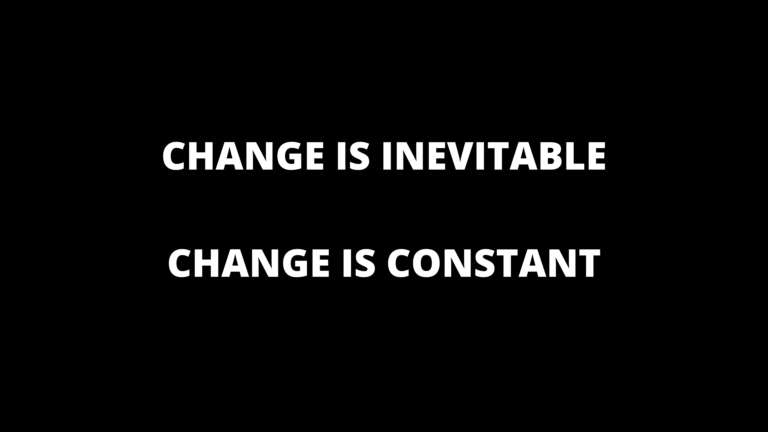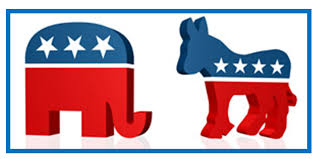
Today is Sunday, February 23, 2020. I came across a meme on a social media platform that is reflected above, which is a slight twist from the long time quote, “The Only Constant Is Change”. Sometimes change is a good thing. Sometimes change is necessary. Sometimes change is either unwarranted, or turns out to be a bad thing, all depending on the circumstances.
There is also the notion that you need to adapt to survive whatever changes occur in your life, be it professionally, in personal relationships, business models, etc.

In the entertainment industry, you can illustrate the need to adapt or perish with the Blockbuster decision to laugh off the upstart challenger Netflix. In this case, Blockbuster failed to realize the potential of Netflix, or to have the vision to integrate technology to adapt to our changing world, thus, instead of buying out Netflix or merging with them, they failed to take them seriously. Netflix evolved from having customers order and exchange movies by mail, to implementing streaming technology, and wiping out Blockbuster. The video rental chain that once had over 9,000 locations, had been reduced to just one as of July, 2018, in Bend, Oregon. That one may have shuttered it’s doors since then for all I know. The point being, Blockbuster didn’t adapt to change, or have the wisdom to embrace the future, and paid the price.




Social media, likewise, has witnessed the rise and demise of “MySpace”, and the takeover of Facebook and others. The future will no doubt feature newer concepts that will supplant the current popular platforms to greatly reduce their influence or toss them on the trash heap entirely. Those who would crown the current dominant forms of communication are doomed to repeat the mistakes of MySpace, Blockbuster, and so many other “giants” of their particular industry.


And, of course, the so called “Mainstream Media” is rapidly becoming a dinosaur in terms of where people turn to for the latest news and information. Network and cable TV news has been overtaken by opinion talking heads that clearly have little if any expertise in the fields they portray as being experts in. For the vast majority of people, particularly younger demos, they turn to the internet as their source of information, sometimes for the better, sometimes for the worse. It appears that in the near future the “Mainstream” moniker for these traditional outlets will fade away, or become so obsolete or useless and will no longer exist.

Perhaps the most telling arena for adapt or perish argument can be found in our political system in the year 2020. Yet, I believe it’s a contrast, or even a mirror opposite of the other examples I’ve laid out above.
From my perspective, over the years, both major political parties in America have resisted change, opting instead to force feed our citizens to believe that they had to choose from one or the other with their rigid established ways to conducting their affairs. That started to change in 2008 with the election of Barack Obama, the subsequent democrat takeover of both houses of congress, and the promised “fundamental change” of our country. Eight years later, Donald Trump threw a new wrinkle into the equation as an “outsider” shocked the establishment of both parties, and then threw down the gauntlet during his inaugural address in January, 2017.
Less than 4 years later, the democrat party has seemed to abandon what their traditional positions and focus used to be, in favor of socialist views, with a party nomination contest that as of today has an avowed “Socialist” leading the field of party presidential candidates, even though he isn’t a registered democrat.
President Trump, meanwhile has governed in a more traditional “conservative” manner, much to the surprise of the republican establishment, as he encourages the nation to put “America First”. His detractors appear to be asking the voters to reject what is clearly working from an economic perspective for the nation, and adopt their ideology, one that has never worked in any country that adopted socialism, or communism. (The argument that Scandinavia is socialist falls flat, as Denmark, Sweden, etc, are quick to reject the notion that their countries are “socialist”, that they are capitalist nations first and foremost, offering their citizens social benefits, paid for my their own citizens with high taxation.)

With only 3 primary contests completed, it’s too early to tell at this moment which of the candidates on the democrat side, if any of them, will prevail once their convention concludes in Milwaukee later this year, however, early indications are that the democrats will continue to move to the left politically, and the President will continue to advocate for a return to a constitutionally based society of law and order, security of our nation, and less government control of our lives. The general election of 2020 may very well be a referendum on capitalism vs socialism, and Americanism vs Globalism.
Far be it for me to tell anyone who or what they should support in the coming election cycle, I would simply urge everyone to be open minded, vet all the candidates and their positions fully, understand the issues at hand, and consider the ramifications and consequences that your vote may hold before you enter that booth come November 3rd, 2020.



